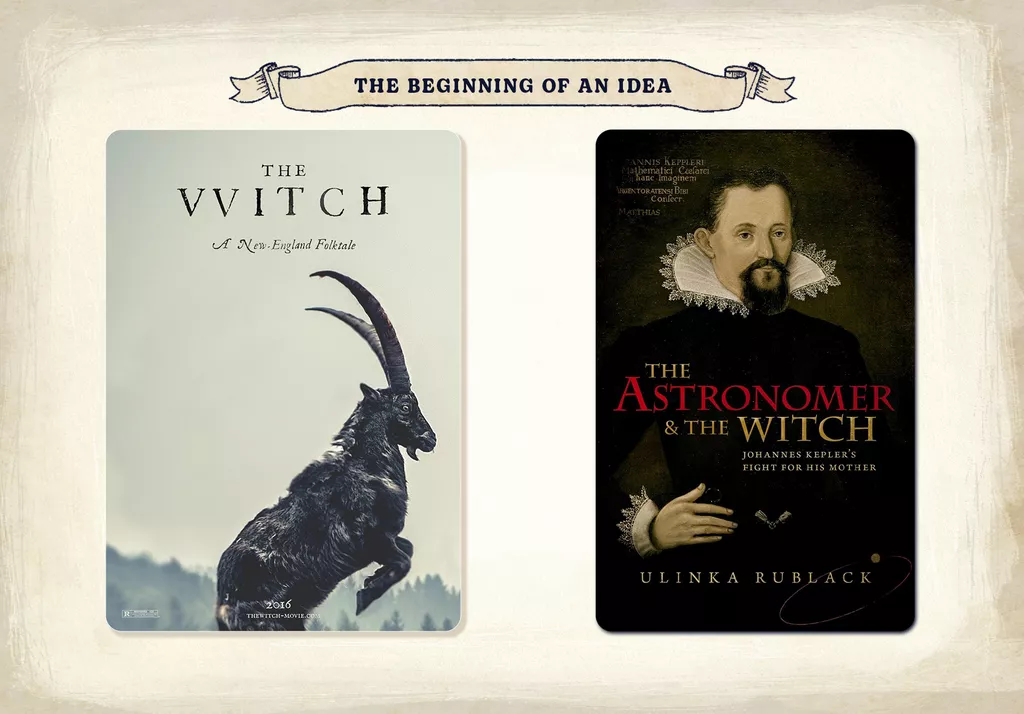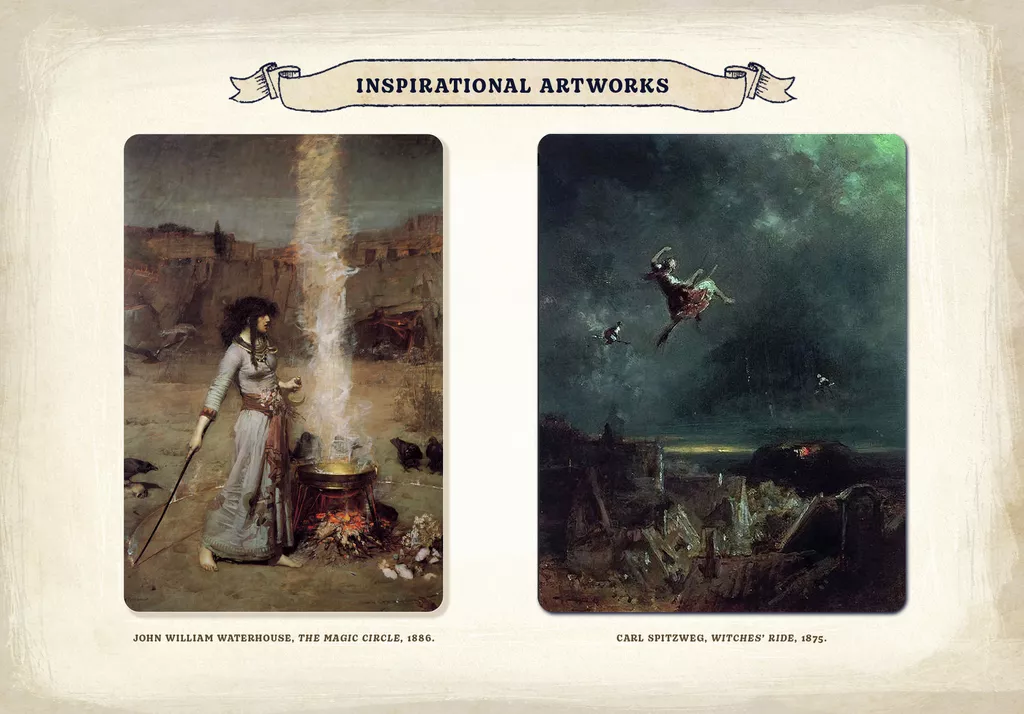Inspirations and Shaping the Game's World
2022. May 26.
Welcome to the fourth instalment of my Design Spotlights on Septima! In the past two weeks, we covered most of the game mechanics and how Septima evolved from an initial idea into a Kickstarter-ready game. Today I would like to be your guide in exploring the game’s thematic background and the inspirations behind it.
The first spark of a Mindclash game idea often comes from a memorable movie. We don’t make actual adaptations, but a “wow” experience in the cinema that stays with you for several days can really get the creative juices flowing. The Cristopher Nolan classic, The Prestige put a bug into Viktor’s and Richard’s ear and inspired them to design Trickerion together, while the impact of Jurassic Park is so fundamental on our generation (most of us at Mindclash are in our early-mid 30s), that it is easy to find its marks all over Perseverance. In the case of Septima, the movie inspiration comes from Dorka, our Community Manager, who was fascinated by Robert Eggers’s 2015 movie The VVitch. She was just amazed by how uniquely the movie presents distrust and the role of medieval women in the era of the witch scare, and how it depicts magic, connected so closely with nature and human desire.
Villő and I watched the movie and we began pinpointing pieces of the experience that fit into our vision for Septima: the Grimmish adult-tale aspect, the powerful and independent female characters that defy the “warty old woman” witch stereotype, and the psychology of crowds. Obviously we found the overall darkness and some grisly horror-like scenes incompatible with our vision, but also it pops up questions regarding a dark period of history.

The story of witchcraft and witch hunts throughout human history is very interesting but also very dramatic. So how can we work with a sensitive topic like this? First of all, learning and thorough research always helps. As a former sociologist, I know the perfect starting point is always reading the relevant literature, which shows us a more detailed picture in contrast to pop culture where everything needs to be oversaturated. The first very impressive book on that journey was The Astronomer and the Witch by Ulinka Rublack, which is about the witch trial of an innocent woman, Katherina Kepler, the mother of the famous astronomer Johannes Kepler. The book paints a frighteningly realistic picture of the age of witch trials and how fundamental was the belief in the Devil’s harmful forces in our world. Even for Kepler, a scientist well ahead of his time, arguing for his mother's innocence was nearly impossible, despite Katherina being a self-supporting widow who people often turned to for help with their health problems. And the author widens the scope of the book by investigating other witch cases, and that highlights the most crucial attributes of many accused people: they were independent, they tried to help others, and their thinking and appearance was different from the norm.
Septima is not about actual history. Not only because I wanted “real” magic to be part of the game, but because the society of this time was extremely rigid and dismissive of those who were different. In the game I wanted to keep the aspects of this fear and suspicion, but also create an alternative space where these unique people can gather, connect, and empower each other. I really wanted a world where they can help people and have the means to protect themselves. Where they are not merely outsiders in a homogeneous society but they can show the benefits of being different. I think somewhere there lies the true essence of witchcraft.

So we set out to develop this alternative world with Villő and Dorka that’s mysterious, thrilling, and dangerous, but also welcoming and cozy at the same time. We love fantasy worlds like this, where mythology and folktales blend with modern thinking, and where near-impossible ordeals and home-like warmth are presented in equal weight (like Harry Potter or The Lord of the Rings). Villő started sketching and I started to write down the stories of the characters as they came alive in my mind, the mosaics of a familiar but fresh realm. And the town of Noctenburg slowly started to take shape.
I really hope the world of Septima will be just as welcoming for you as for us. We know every corner of it by now, and it will be a pleasure to be your guide in next week’s Designer Diary too!
Until then,
Robin
If you would like to get notified once Septima launches, subscribe on Kickstarter: